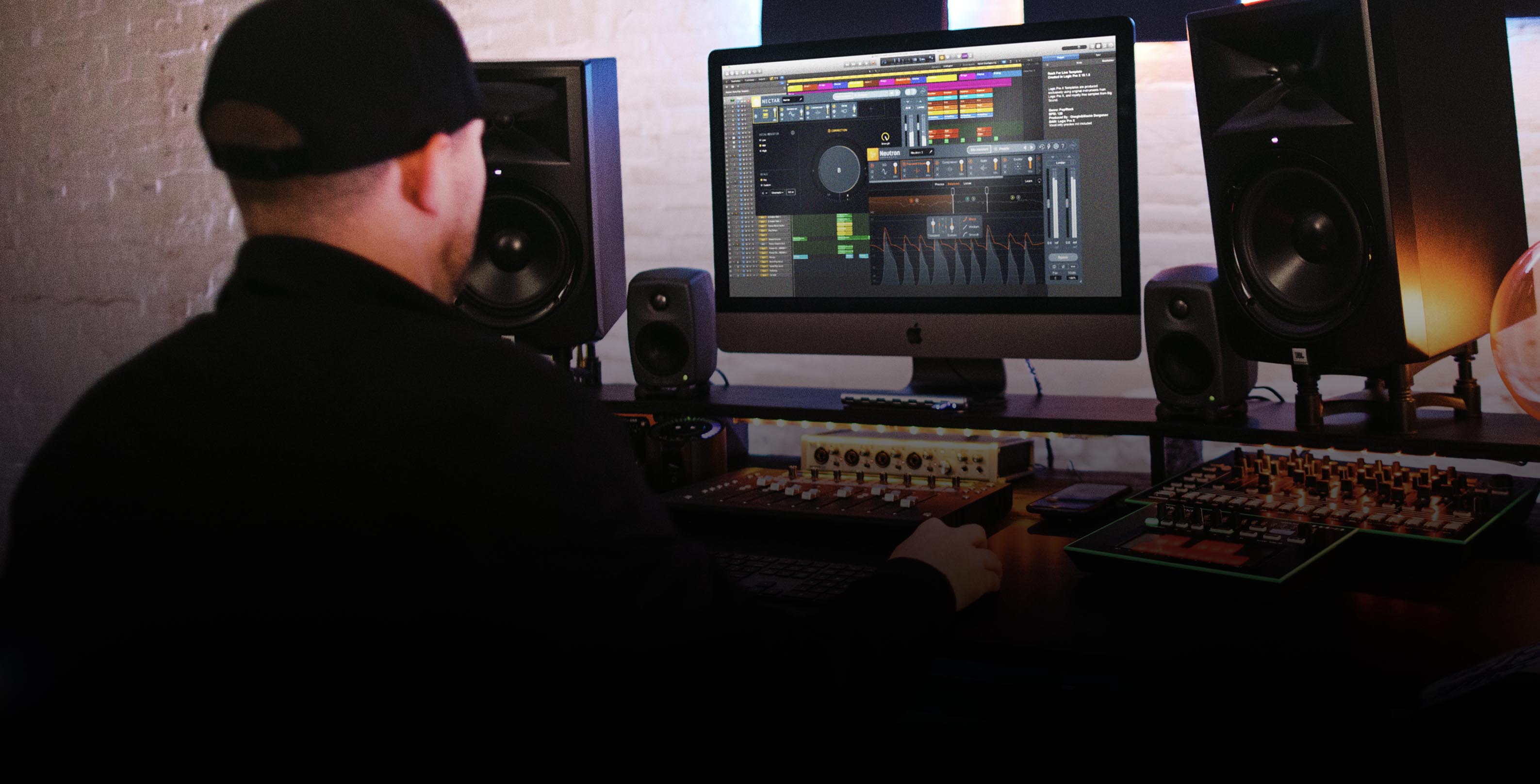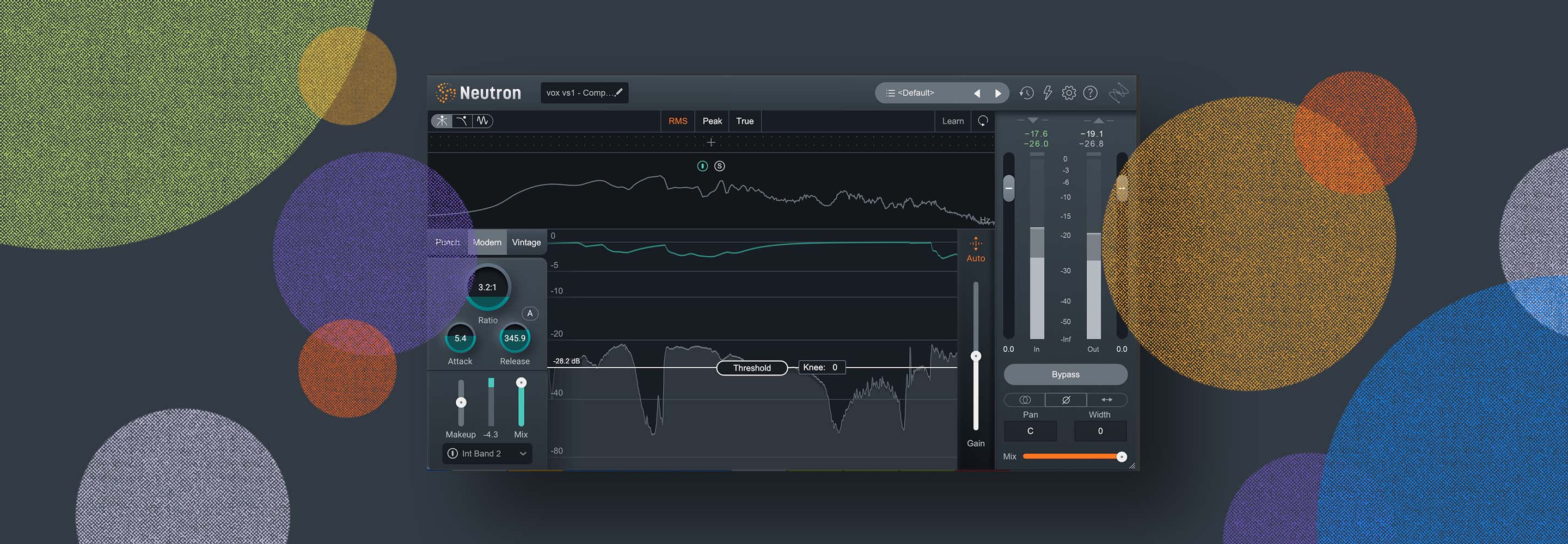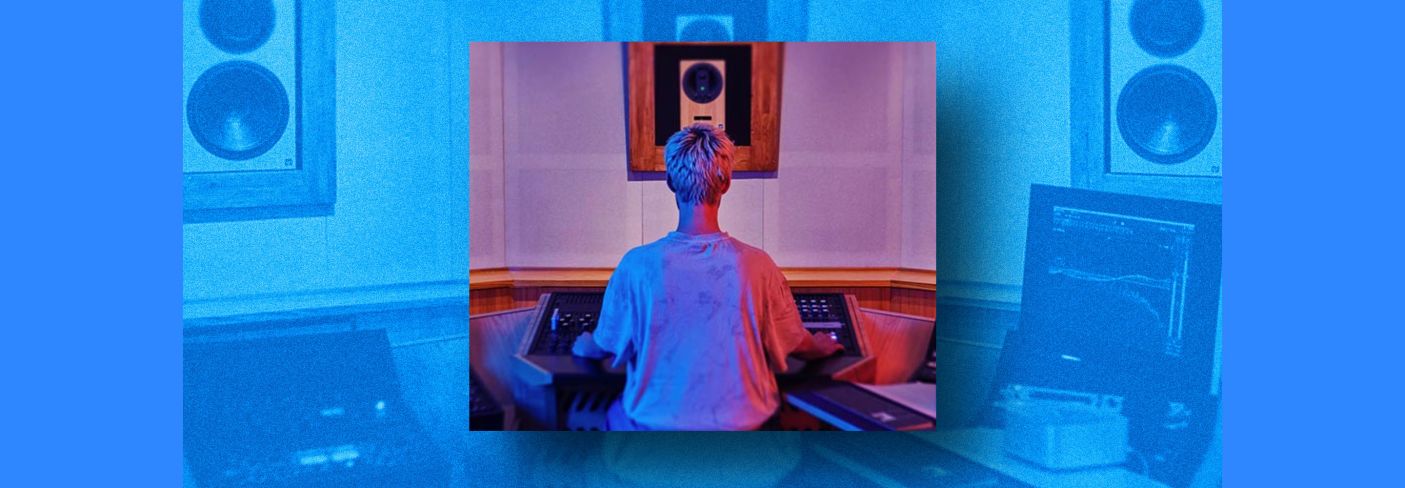
How long does it take to mix and master a song?
It can be difficult to know just how long it takes to mix and master a song. Take a look at typical time ranges for both, plus ways to speed up your workflow.
If you’re in the early stages of your audio engineering journey you may very reasonably be wondering, “How long does it take to mix a song? Am I taking too long?” Or perhaps you’re confident in your mixing chops but keep pondering, “How long does it take to master a song?”
Whether or not you’re comparing yourself to the pros – more thoughts on that later – you may take comfort in knowing that there’s no single answer. There are some typical ranges we can talk about, but even those will be imprecise and context-dependent. The good news is that whatever those time ranges are for you, we have some tips to make them shorter and speed up your workflow. So let’s get into it.
Follow along with


Music Production Suite 7
How long does it take to mix a song?
The length of time it takes to mix a song depends on many factors, the biggest one being the complexity and number of tracks in the arrangement and recording. Obviously, a simple singer/songwriter song with maybe 6 or 12 tracks will take a lot less time to mix than a complex pop or electronic production with a track count in the triple digits.
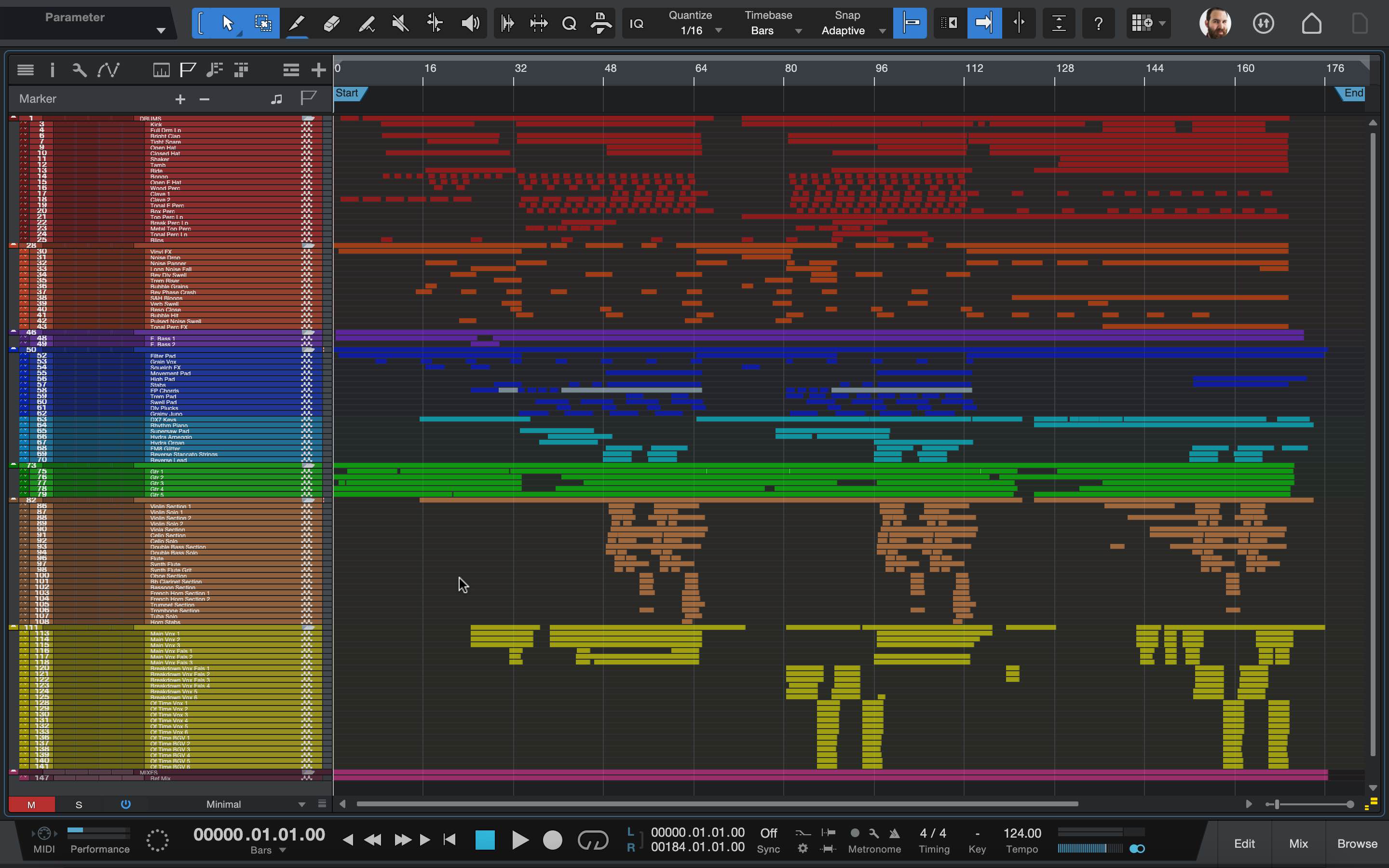
A mix with a cool 100+ tracks
Another potential factor is the duration of the song. A long song with multiple, disparate sections may almost need to be approached as multiple mixes, whereas our voice and guitar singer/songwriter example will probably accommodate one treatment all the way through.
If we take those as upper and lower bounds, a simple song might only take a few hours to mix, if that. A more complex song might easily take upwards of a day to even a few days, especially if you’re working on your own. As the complexity of the project grows, two of the specific tasks that take the longest are session setup and organization, and getting a rough balance dialed in. Many of the professionals you’ll hear talk about mixing multiple songs in a day have assistants who can take care of these initial steps for them, allowing them to jump right in and get to the fun part of mixing.
So, as a very broad, general guideline, we can say it should probably take between a few hours and a few days to mix a song, depending on its complexity. It’s worth noting that this estimation is for a first mix, and doesn’t include time for review and revisions. If you’re not there yet though, don’t worry! We’ll talk about that more below.
Is it hard to mix a song?
Mixing a song can be challenging and rewarding. I can’t think of many people who would say, “Eh, yeah, mixing is a breeze.” It’s certainly a difficult discipline. However, it’s also a challenge that many people find rewarding, sort of like a big, 1,000-piece jigsaw puzzle. With dedication, practice, and a willingness to learn, anyone can improve their mixing skills over time.
How long does it take to master a song?
In mastering, things generally move quite a bit more quickly than mixing. Part of this has to do with the fact that we’re almost always dealing with single, stereo, mix files, so there’s not the same variance in project complexity. Rather, the main differentiators are stereo vs. stem mastering, and whether we’re working on a single song or a full album. The quality of the mix(es) can certainly play a role too, but that often impacts the time requirements less than you might think.
So what sort of time frames are we looking at? For a single song, the processing part of mastering – EQ, compression, limiting, etc. – might take on the order of 30 to 60 minutes. An excellent mix might come together more quickly, in perhaps 15 or even 10 minutes, and often when you’re working on an album the pace will pick up after the first song as you start to figure out what does and doesn’t work for the sound of the album.
However, mastering is more than just processing, and all the other parts take time too. Depending on the distribution channels – streaming, CD, vinyl, etc. – different formats and masters may be required, and each of those needs to be rigorously QC’ed. So, with that in mind, we could estimate that in the best of cases, a single could be mastered – including all the attendant tasks – in about an hour, while an album might take a day or two.
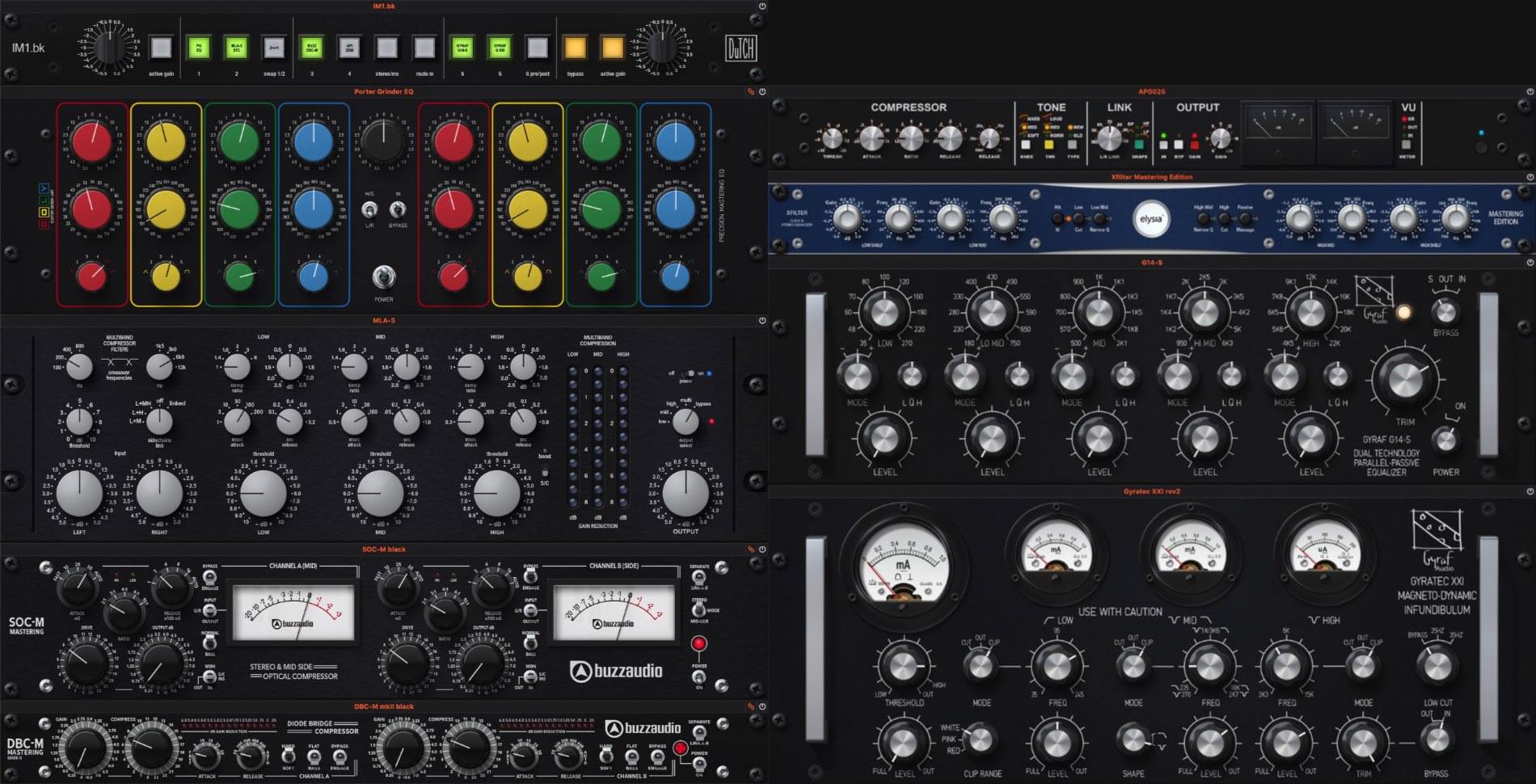
Analog recall can also add time when revisions are needed
Again, this excludes review and revisions, and if it still takes you longer than that, don’t worry about it too much! Next, we’re going to look at ways to speed up the processes of both mixing and mastering.
Ways to speed up your mixing and mastering workflows
If you’ve been looking at the numbers I’ve been citing and thinking, “Ummm, yikes. It takes me a lot longer than that…” don’t fret. First of all, the time ranges I’ve mentioned are for pros who do this all day, every day, and likely have been for many years. Comparing yourself to them just wouldn’t be fair.
Second of all, there are some concrete ways you can get faster and better, and that’s exactly what we’re going to look at next.
Practice makes better
I know, no one likes being told to practice, but the good news here is that practicing just means doing more mixes and masters – which hopefully is a fun thing! A few good ways to do this are to look for mix competitions online or head over to Cambridge Music Technology where you can find an extensive multitrack download library.
From there, just start mixing and mastering! Moreover, don’t just mix and master a song once and call it good. Once you finish a mix go back to the beginning and do another mix, seeing if you can beat your first one – and yes, it's totally fair to save a version after you do your setup and organization to save a little time. Then pull both mixes into a mastering session and see if you can master the first mix to beat the second mix.
By trying to one-up yourself at multiple points, with multiple disciplines, you’ll likely find new and interesting ways to grow your skills. Not only that but you’ll start to get a more innate sense of where the limits of what can be done in mastering are, which will likely make you a better mixer.
Use AI-powered tools
While AI may have exploded into the zeitgeist in the last year or two, iZotope has been building tools using AI and machine learning since 2016. While


Neutron


Ozone 11 Advanced
For example, Neutron’s Assistant View can help take you from the raw tracks, to an initial balance, to a rough mix, all in just a little longer than the length of your song. Then, Master Assistant in Ozone can suggest a tailored starting point to get you well on your way to a master. For example, by using the Mix Assistant in Visual Mixer I can go from the flat tracks to a good static balance.
Static balance with Visual Mixer
Now I know that may sound underwhelming at first blush, but there are a couple of key things going on here:
- A few elements that were definitely much too up-front have been tucked in nicely, and…
- It’s set up our gain staging so that the Neutron Mothership can more effectively work on large groups.
I can now group the roughly 100 tracks that make up this mix into seven buses, load Neutron onto each of them, run Assistant View, make a few little level tweaks, and very quickly get to this, which could easily pass as a rough mix – compared again with our flat tracks.
Here is what that sounds like.
Assistant View on busses
Then, even before I dive into properly mixing things, if I want to get a sense of where the master could end up, I can load Ozone on the rough mix, run Master Assistant, make a few tweaks to the macro controls, and end up here. Note that I’ve level matched the output of Ozone to the mix level coming in.
Here's what that sounds like.
Mix with Ozone Master Assistant
(level-matched)
And for good measure, here’s the full level output of Ozone. You may want to turn your monitors down – it’s about 10 dB louder.
Not bad for under an hour of work – and that includes some organization and grouping of tracks! With this as a jumping-off point, you’re in a great position to start fine-tuning your mix.
Use educational resources
We live in a bit of a golden age when it comes to high-quality, online educational resources for all sorts of audio engineering disciplines. Of course, you’ve found one already! The Learn portion of the iZotope website has an absolute wealth of articles on just about every facet of music-making, with dedicated sections for mixing and mastering in particular.
If you’re more of a visual learner, the iZotope YouTube page has hundreds of videos, including six seasons of the highly informative – and entertaining – Are You Listening series. Those alone contain 40 in-depth videos dedicated to mixing and mastering!
And of course, there are many sites beyond the iZotope universe. Platforms like Puremix, Mix With the Masters, and MasterClass all have substantial libraries of high-quality audio engineering educational resources. The web is your oyster!
Start mixing and mastering music faster
So, whether you’re looking to speed up your mixing or mastering workflows, you have a vast array of resources at your fingertips. Neutron and Ozone have built-in tools that can help you get to a great starting point in a fraction of the time it might otherwise take. That then frees you up to use your creative energy on the more artistic parts of mixing and mastering, or to take advantage of the numerous educational assets at your disposal.
If you haven’t tried the assistants in Neutron or Ozone before, you can leverage both with


Music Production Suite 7

